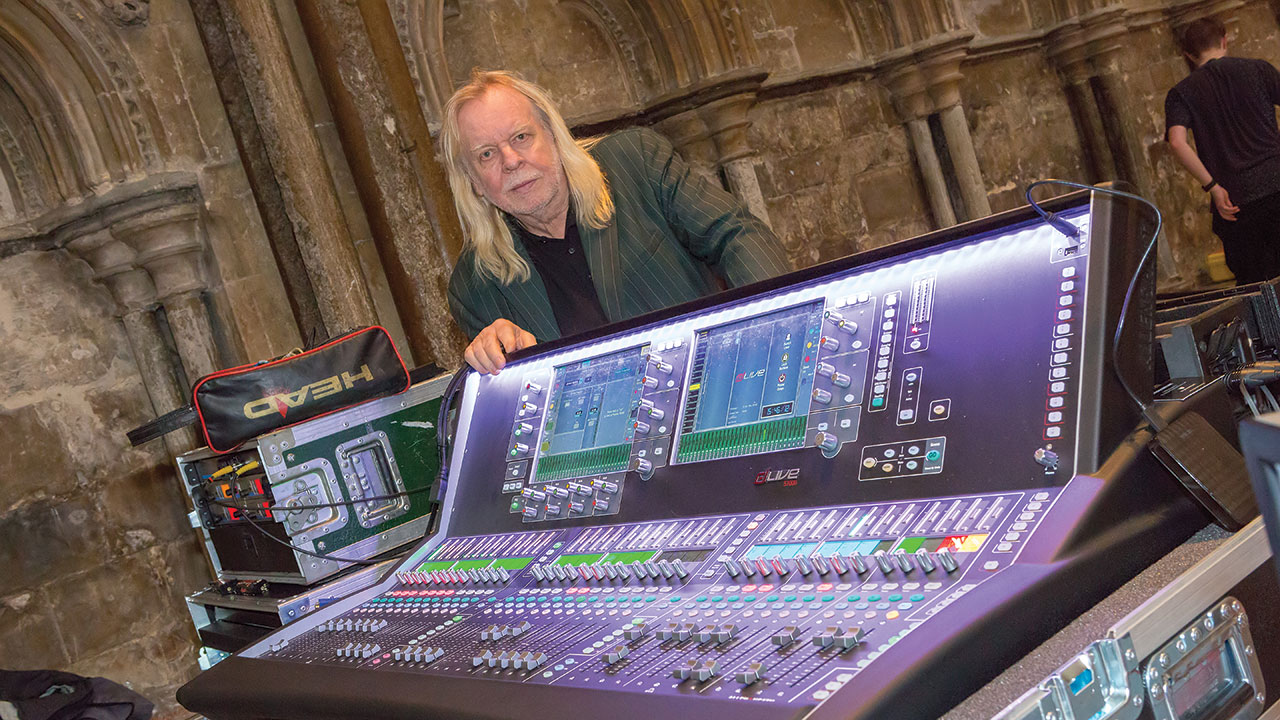Coronavirus has generally proved a great leveller. But there are exceptions to every rule, as evidenced by music mogul David Geffen tweeting injudiciously from his Rising Sun superyacht in the Grenadines, while Richard Branson shamelessly sought a British government bailout for Virgin Airlines from his Necker Island tax haven in the Caribbean.
However, Rick Wakeman has been subject to coronaviral levelling. Not only was an April launch at the National Space Centre in Leicester for his forthcoming all-instrumental album The Red Planet kiboshed, but a house move has also been delayed. Hence his pithy verdict on the impact of Covid-19: “It’s been a nightmare artistically and work-wise.”
Wakeman has been confined to his current barracks, save for grocery shopping for himself, his wife Rachel and his mother-in-law. However the keyboardist hasn’t been using Skype, FaceTime, Zoom etc. “My phone is so old that nothing works on it. The automatic spellcheck is a nightmare. It turns ‘pianos’ into ‘penis’. So I’ve had a few strange texts go out that maybe shouldn’t have gone out. Especially to the vicar…”
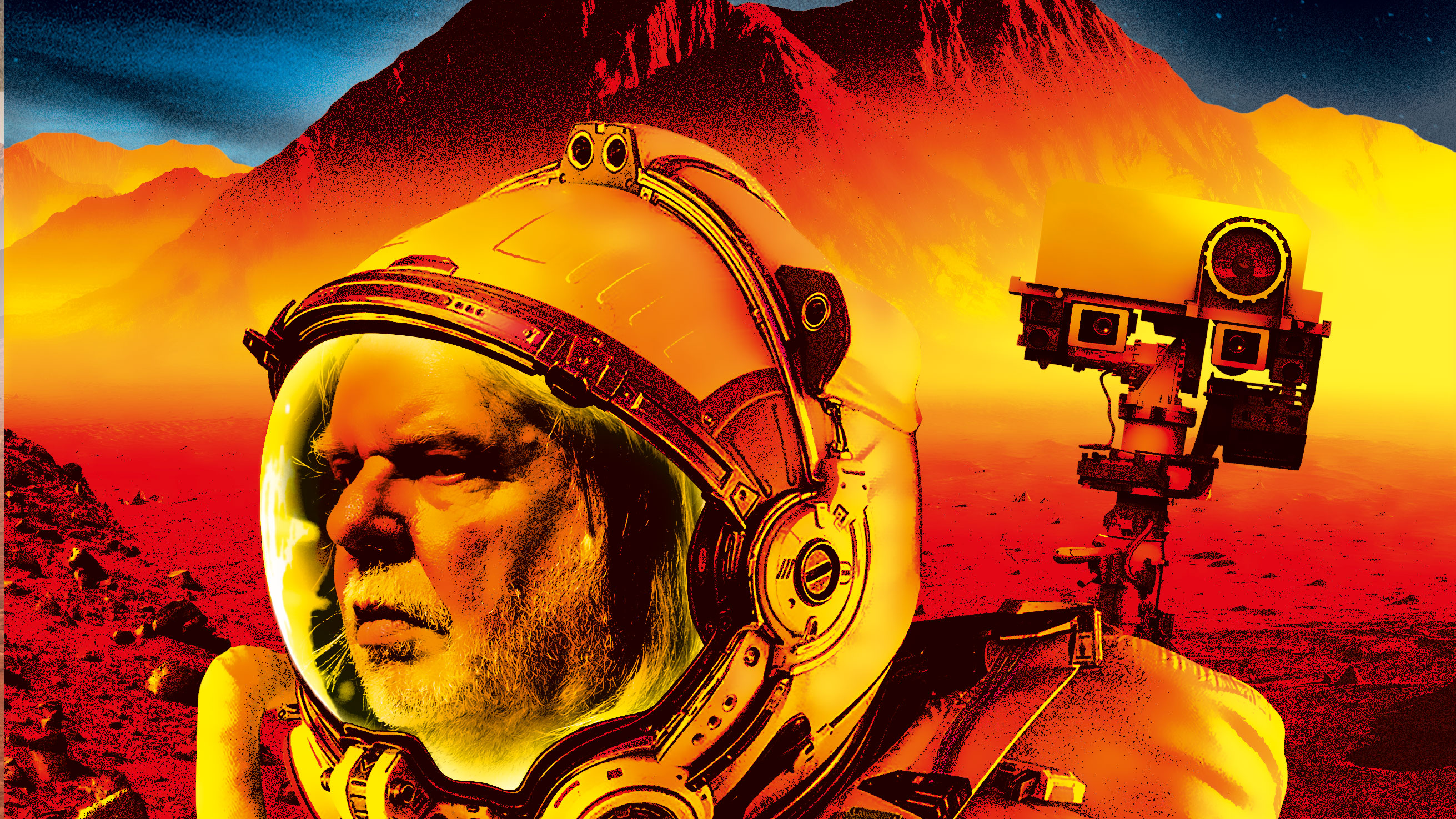
Perhaps surprisingly given the array of keyboards that surround him onstage, beyond the proficiency of using Sibelius music notation software, Wakeman doesn’t regard himself as technically minded. His sometime English Chamber Choir collaborator Guy Protheroe instructed him swiftly on the rudiments of Sibelius. “Guy
came over and said, ‘Forget the book’, and it’s been great. I just use the book for reference occasionally. I’m not very good at reading instructions. Do you know any cook who’s [got] good looking at cookery books?” he asks rhetorically.
“As to how keyboards work, not a clue!” he laughs. “I have a wonderful technician and engineer. When we get something new, Erik Jordan comes over and doesn’t even look at the books. He spends half an hour and then shows me. If I’m shown how something works, it’s much better than me trying to read it in a book.”
Having recently celebrated his 71st birthday, Wakeman has seen plenty of significant world events and disasters but is clear where the Covid-19 crisis ranks in terms of impact. “There’s been nothing in my lifetime even close to this. This crisis is the first ever that affects everybody worldwide. Bill Gates warned of this five or six years ago. With various health issues in our family, we’ve made very good friends with medical people. They always said that if this got out of China, we could be in serious trouble.”
Whereas the Sars crisis of 2002/03 was primarily confined to Asia, Covid-19 swiftly became a global issue, expedited by the significant increase of mass air travel in the interim. “We’ve shrunk the world and with that comes huge problems,” the musician sighs.
Wakeman is vehemently opposed to the wet markets in China and Indonesia and, as an ambassador for Animals Asia, he is involved in the fight to get them closed down. “You can’t change the mentality of the older people, but the younger people are very supportive of getting wet markets stopped. It’s similar to how in the 1950s every woman aspired to [wear] a fur coat, but now they wouldn’t be seen dead in one.”
Covid-19 has struck close to Wakeman, who has lost friends to the virus, including Tim Brooke-Taylor. “It has been horrendous. And so difficult that you can’t go to see the families or attend the funerals. At least another 30 friends were diagnosed but luckily seem to be coming out of it. It’s terrifying when it’s people you know.”
Wakeman and his wife are both technically classed as ‘vulnerable’ to Covid-19. “My medical history is not great,” Wakeman remarks drily. His wife was recently treated for cancer for 18 months, enduring numerous operations and bouts of chemotherapy before receiving the all-clear last Christmas. “Of course she’s worried, just as I am. We don’t feel ‘vulnerable’, but we are in that category.”
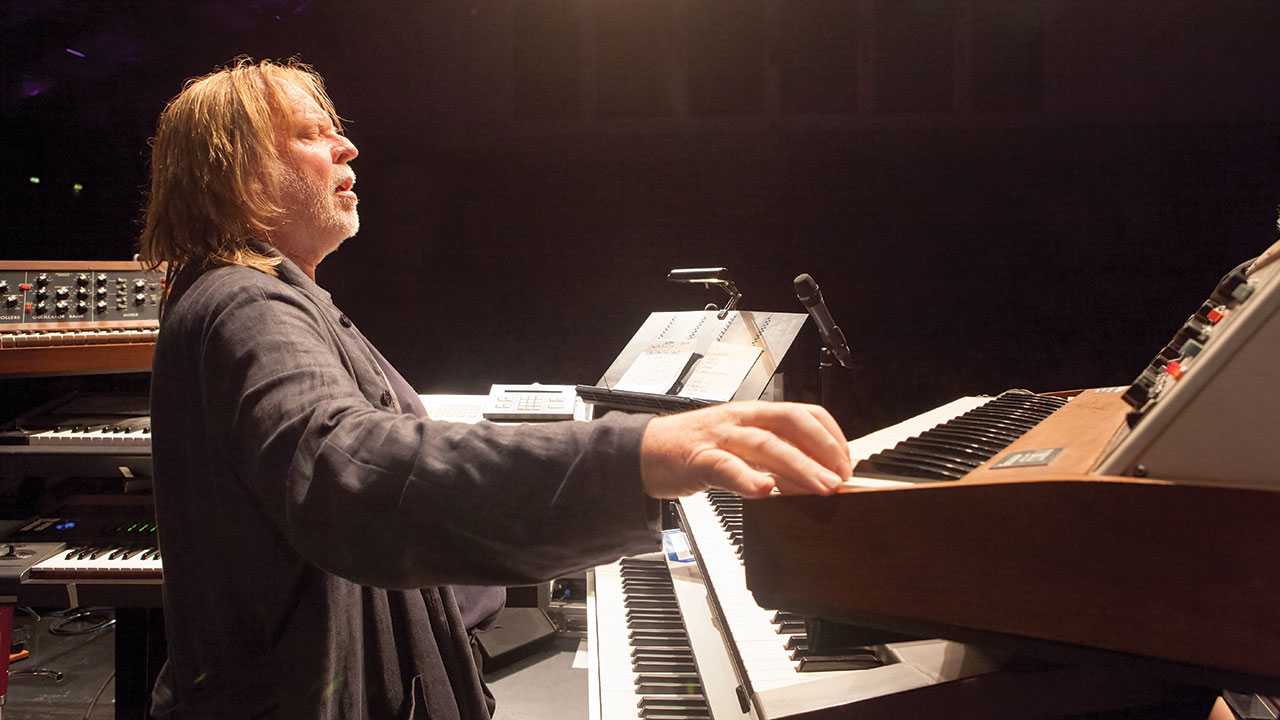
Like everyone else, the keyboardist is looking forward to life returning to normal and cites a fresh perspective. “I will certainly appreciate being able to see friends and go for all the walks that I like to do. There’s so much that you take for granted.” However he is sceptical about other positives emerging from the coronavirus crisis.
“There’s going to be massive job losses and companies going down,” he laments. “I truly don’t know how the hell the entertainment industry is going to recover. And we will have an anger period, because in this country people always look for somebody to blame.”
Nevertheless, having recently finalised The Red Planet, Wakeman is preparing for musical life after Covid-19, including discussing a potential setlist with his English Rock Ensemble for when touring can resume. He’s also preparing for a solo piano tour of the US scheduled for October and his English Christmas shows.
“With my piano shows it’s just me, not lots of people in a band or crew. But there is no way I will do anything that will put myself or the audience in the remotest possibility of danger.”
Before Wakeman performs live again, The Red Planet awaits release. Its genesis lies in his recent shows resurrecting his albums Journey To The Centre Of The Earth and The Myths And Legends Of King Arthur And The Knights Of The Round Table, originally released in 1974 and 1975 respectively. “I really enjoyed the King Arthur and Journey shows at the O2 Arena and the Royal Festival Hall in London,” he enthuses.
On recent piano tours Wakeman had learned that fans were enquiring when he would record another instrumental prog album like The Six Wives Of Henry VIII or Criminal Record. “That set me thinking. And I always like to find a subject matter to inspire me rather than sitting down and saying, ‘Come on inspiration, come from somewhere!’”
In the interim Wakeman had participated several times in the Starmus Festival run by Armenian astrophysicist Garik Israelian and whose advisory board has included Stephen Hawking, Brian May and Peter Gabriel. “Garik is ludicrously clever – he’s the original rocket scientist and one of the guys who proved black holes. And Brian is a great mate. So it’s wonderful to be involved.”
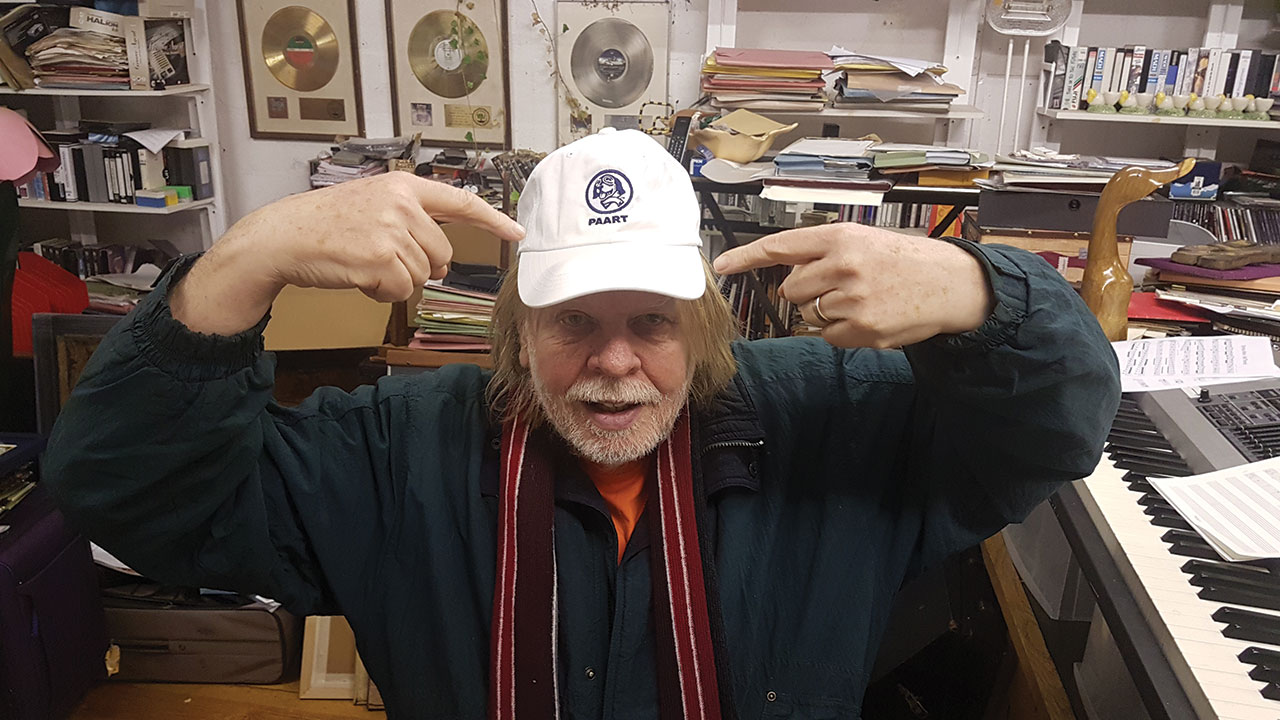
Wakeman performed at the second and third festivals, held in 2014 and 2016 in the Canary Islands, and at the fifth festival in 2019 in Zurich commemorating the 50th anniversary of man standing on the Moon. “They had every surviving astronaut there who’d walked on the Moon. It was very strange talking to Buzz Aldrin. I just kept saying ‘You walked on the Moon!’”, Wakeman recalls, sounding awed. “It was bizarre and fantastic.”
Aside from playing Starmus festivals alongside Brian May and Steve Vai, Wakeman has clearly relished his involvement in the festival. “There are lectures by wonderful astronauts and astrophysicists and then massive concerts. The festivals have proved incredibly popular.”
Wakeman has prior form of taking space as an inspiration for albums such as 1976’s No Earthly Connection and 2003’s Out There. “Space is a fascination for me. I have close connections with friends at NASA and other astronauts. On a clear night I can lay on the ground in my garden, just look up at the stars and be in heaven.”
David Bowie’s death in early 2016 prompted Wakeman to revisit Life On Mars for charity. This combined with the impending 50th anniversary of the first landing on Mars caused him to ruminate further about the ‘red planet’. “Mars is of great interest to everybody in the astrophysics world, because the more they learn about it, they discover that millions of years ago it was not that dissimilar to Earth in its makeup,” Wakeman explains. “And I love all that.”
Consequently Wakeman began to write music based around some of the volcanoes on Mars. “I was really enjoying myself and coming up with some good stuff while looking at pictures of Mars and photos that had been taken from the various rovers.”
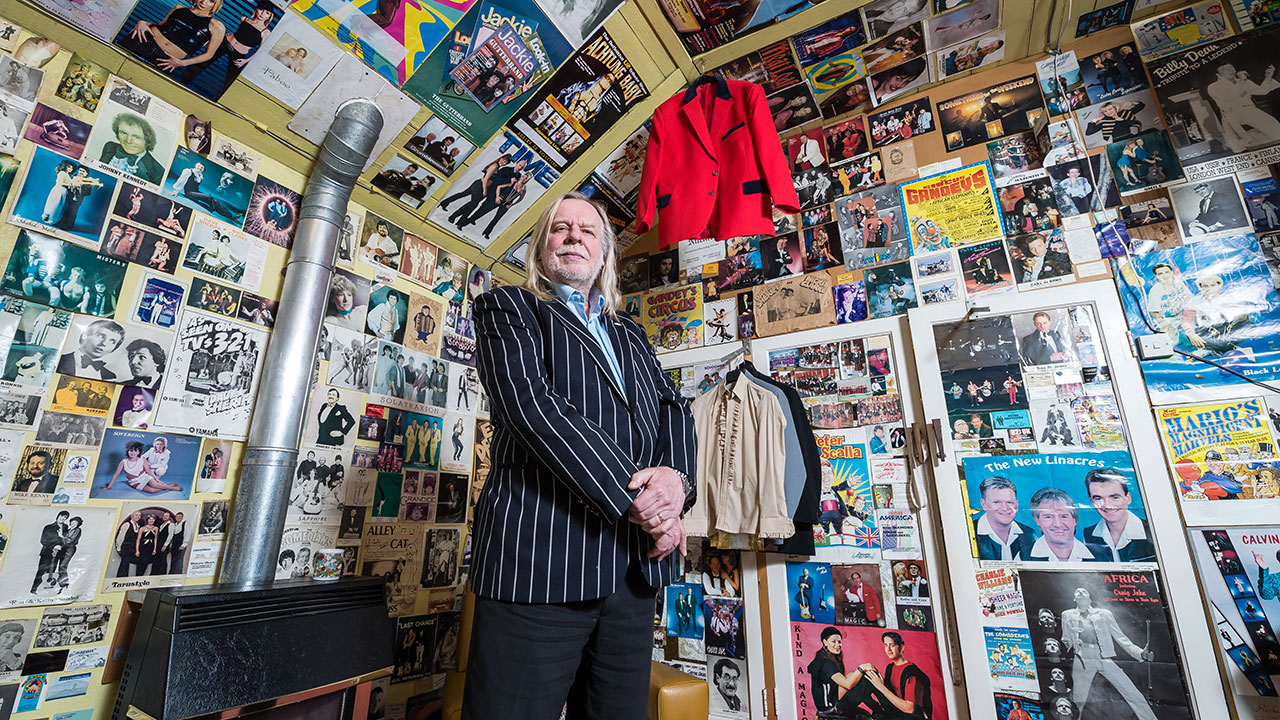
Beyond his source of inspiration, Wakeman believes that the long gap since his previous instrumental prog album (the aforementioned Out There) brought an advantage. “Everything was so fresh for me to do. I had a big smile on my face when some of this stuff came to me and I was writing.”
Unusually as part of his modus operandi Wakeman revisited some of his older albums and listened to the instrumental parts, noting particular sounds that resonated particularly with him and making a mental note to seek to incorporate them into The Red Planet. In turn he identified certain sounds that he hadn’t used for some considerable time and determined to do so.
One instrument was a fait accompli however, namely the church organ. “People always ask for the church organ. Normally in prog mode I use church organ for what I call the ‘final kitchen sink’ – when people think things are built up as big as they possibly can and that there can’t be anything more, I throw in the church organ. This time I did it the other way around, starting with the church organ and putting other things around it. It worked really well.”
Wakeman mentions that his long-time English Rock Ensemble cohorts bassist Lee Pomeroy and guitarist Dave Colquhoun are ‘brutally honest’ in their assessment of their boss’ material. “We know each other well enough that if I do something and they think it’s not very good, they will tell me. And Lee said he’d been waiting for music like this from me for a long time, which was nice.”
Colquhoun and Pomeroy were easy choices for the album for both practical and musical reasons. The former ruled out long-time Wakeman associate drummer Tony Fernandez (with session drummer Ash Soan replacing him), while for the latter Wakeman adhered to some historic advice from Bowie.
“In 1970 David said to me, ‘When you’re recording your own music, make sure you pick musicians who understand what you’re doing. You can get great musicians, but if they don’t understand what you’re trying to achieve, you’ll never get the right result.’ He was spot on.”
For The Red Planet, Wakeman sent Pomeroy and Colquhoun the basic keyboard tracks in January this year and gave them carte blanche to add their stamp to the material. “They added things I wouldn’t have expected, which was lovely. Then I did my final topping and tailing with solos and other little bits that I thought would be quite nice.”
The Red Planet was completed in early March and Wakeman declares himself entirely happy with the outcome. “When I listen to it now, would I change anything? I can put my hand on my heart and say I wouldn’t change one note.” While fans of his piano albums may find a hardcore instrumental prog album an aural challenge, the legions
of Yes fans should enjoy it, particularly with no imminent prospect on the horizon of any new Yes music.
“Lee said to me that he can hear Yes in some of The Red Planet. Well I was part of the band, so there’s always things I’ll do that’ll sound like Yes. And I’m not worried about that one iota.”
Wakeman is volubly hugely confident about The Red Planet. “This is far and away the best thing I’ve done for as far back as I can remember. It’s as refreshing to me as when I did the The Six Wives…. If someone tells me they’re not sure about it, I can hold my head up and say, ‘Well I’m sure.’ The Red Planet is a real statement of the path I’m on at the moment.”
